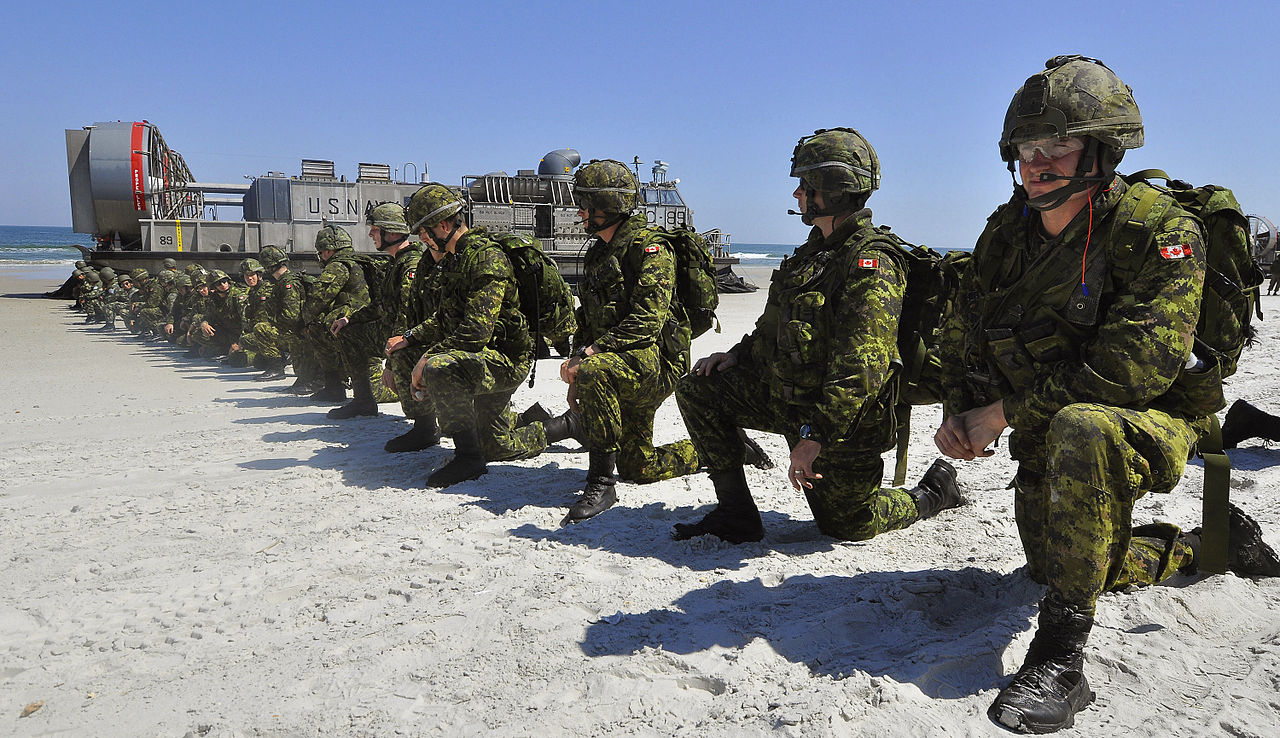The Canadian Forces spends hundreds of millions of dollars a year to shape popular discussion of military affairs. But, did you know that commanding officers also aim to control the flow of information to rank and file soldiers?
Recently, the newspaper at the Esquimalt, British Columbia, naval base rejected an ad from a law firm seeking to represent CF members who had been sexually harassed/assaulted. Quoting a comment by Chief of Defence Staff Jonathan Vance on the impact of sexual assault in the military, Acheson, Sweeney, Foley and Sahota sought to advertise a “safe and supportive environment to tell your story.”
Esquimalt’s Lookout is among dozens of military run newspapers, journals and websites aimed at armed forces personnel. CF public relations officials generally decide what is published in them. The top brass has also sought to control independently owned media targeted at soldiers, notably Esprit de Corps, which aims “to contribute to the esprit de corps that has made the Canadian military one of the finest professional armed forces in the world.”
To gain access to Air Canada military charters in the late 1980s, the magazine was supposed to obtain DND “approval for all editorial content prior to publication.” But, in 1991 Esprit de Corps criticized the appointment of Marcel Masse as defence minister and interviewed Vice Admiral Chuck Thomas after he resigned as vice chief of defence. In response DND directed Air Canada to stop carrying Esprit de Corps. According to founding editor Scott Taylor in Unembedded: Two Decades of Maverick War Reporting, the airline sent the magazine a note saying, “due to concerns over editorial content, the Department of National Defence has ordered Air Canada to cease distribution of Esprit de Corps aboard military charter flights.”
Almost entirely distributed in-flight at the time, DND’s move would have crippled the magazine. The CF only backed down after Esprit de Corps went public and then privately threatened to reveal a possible conflict of interest between Chief of Defence Staff John de Chastelain and Canadian Defence Quarterly.
When Esprit de Corps helped expose the military’s attempt to cover up the 1993 Somalia Affair killings, the CF again targeted the magazine. Taylor writes, “memos were sent to the CANEX military retail stores, ordering them to cease the sale of our publication; the copies we had donated through the Royal Canadian Legion were to be burned, according to the official directive from National Defence Headquarters.” Even more debilitating for the magazine, DND asked Esprit de Corps defence clients to “cancel their advertising contracts.”
The military seeks to control what active soldiers can say publicly or post online. Under the Defence Administrative Orders and Directives and Queens Regulations and Orders, soldiers are not allowed to discredit the CF or discourage other troops from their duties.
With the rise of social media the Chief of Defence Staff ordered CF members to obtain authorization before posting information on Facebook or other online outlets. In 2006 Rick Hillier wrote, “[CF] members are to consult with their chain of command before publishing [CF]-related information and imagery to the internet, regardless of how innocuous the information may seem.”
In a reiteration of standing policy, in 2013 the CF required soldiers wounded in Afghanistan to sign a form saying they wouldn’t criticize senior officers on Facebook or other social media. Given to injured personnel transferred to the Joint Personnel Support Unit, the form stated “it must be clearly understood that the inappropriate use of social media can have serious ramifications for the CAF; it can erode public trust, cause serious breeches of security and destroy team cohesion.”
Alongside overt information control, DND operates numerous educational institutions. With two television studios, two radio studios, editing suites, a control room and 25 staff, the Defence Public Affairs Learning Centre trains soldiers in public relations. The Canadian Special Operations Training Centre trains Joint Task Force 2 and the Canadian Special Operations Regiment. Canadian Defence Academy includes the Toronto-based Canadian Forces College, Royal Military College Saint-Jean and Royal Military College of Canada (RMC) in Kingston. With over 150 faculty the RMC is the only federally run degree-granting university. DND provides about $70 million annually to RMC and the defence minister is chancellor of a university with 2,500 students.
The federal government spends heavily on shaping soldiers attitudes. With 120,000 active soldiers, reservists and DND employees the military’s internal ideological capacity has a wide reach.
In a mainstream media story about one of Canada’s “enemies,” this sort of activity would be called brainwashing.
Image: Wikimedia Commons/United States Navy
Like this article? rabble is reader-supported journalism.




